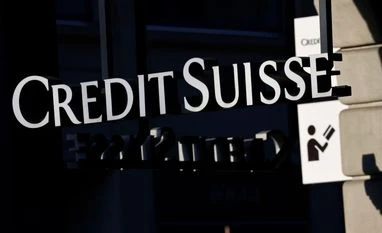Markets are too optimistic with their projections around the reversal in interest rate cycle and there are still many risks beneath the surface, says Nannette Hechler-Fayd'herbe, Head of Global Economics & Research at Credit Suisse.
If the US Federal Reserve starts cutting interest rates, it will be due to negative shocks, she added.
"Of course, it can happen. It cannot be excluded if some negative shocks affect the economies. But then this shock could also mean many more negative outlooks for the economy," Hechler-Fayd'herbe said during the release of the "Supertrends 2023" report by Credit Suisse.
Hechler-Fayd'herbe said it's not the time for investors to relax because there is quite a lot of uncertainty beneath the surface, whether it is on the geopolitical front or the economic outlook.
Moreover, the cumulative effect of the interest rate will only transpire and affect economies in the months ahead.
"It takes a certain amount of lag before slowing might appear,” said Hechler-Fayd'herbe.
More From This Section
She said a lot of good performance in equity markets was driven by hopes that central banks might reverse interest rate hikes by the end of the year. Though the Fed has reached the peak of its rate hiking cycle, ECB is not yet finished with theirs.
And even the Swiss National Bank, which held interest rates negative for so long, will probably take some time before reaching its terminal rate.
"Several central banks are still on a tightening course. Even as far as the Federal Reserve is concerned, expecting interest rate cuts next year is not realistic. The US economy is proving resilient, and its labour market is running at red hot levels,' said Hechler-Fayd'herbe.
Hechler-Fayd'herbe said the new problem that the Federal Reserve is facing is entrenched inflation.
"We are a long way from where the Federal Reserve might feel comfortable or compelled to change interest rate policy which it has done so far," Hechler-Fayd'herbe said.
Moreover, China's reopening will likely add to global manufacturing and economic growth at some point.
"This is creating an environment where central banks may not be as complete with supporting their economies when comparing their need to rein in inflation," said Hechler-Fayd'herbe.
Hechler-Fayd'herbe said investors should identify sectors and companies on long-term catalysts of change in terms of demographics, technology, societal concerns and climate change.
)